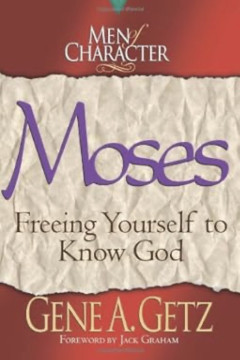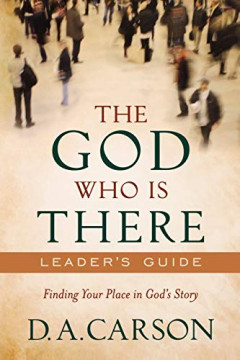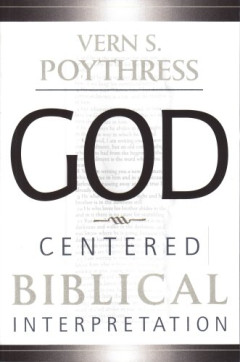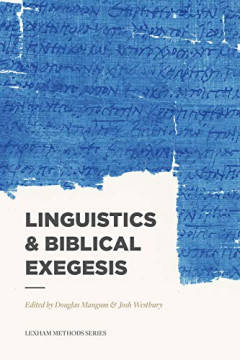Filter by

Men of Character: Elijah: Remaining Steadfast Through Uncertainty
Modern idols come in many forms: money, power, position, prestige. Elijah dedicated himself to destroying the idols of his day with deep conviction and unwavering tenacity that few have equalled since. His simple, straightforward prophecy to Ahab was that there would be no rain until the people destroyed their idols. Even though Elijah was a time fearful, lonely, and lacking in faith, he remai…
- Edition
- -
- ISBN/ISSN
- 0805461663
- Collation
- Softcover; 192 hlm.; 15.3 x 22.8 cm
- Series Title
- Men of Character Series
- Call Number
- 222.2092

Men of Character: David: Seeking God Faithfully
King David was a deeply flawed man, yet he became one of the greatest leaders in history. His story reminds us that we are all imperfect and subject to tragic failure, but that God can still use us when we humbly and sincerely seek forgiveness. Though forgiven, David paid for his sins dearly - particularly in the life of his family. But, he never resigned himself to a life of despair as did his…
- Edition
- -
- ISBN/ISSN
- 0805461647
- Collation
- Softcover; 192 hlm.; 15.3 x 22.8 cm
- Series Title
- Men of Character Series
- Call Number
- 222.2092

Men of Character: Moses: Freeing Yourself to Know God
Under the reign of a murderous pharaoh, Moses' parents were forced to trust God for the life of their child. Years later, Moses showed this same faith in leading the Israelites out of Egypt into the land God had promised them. Though there were many conflict in Moses' lifetime, he never allowed them to compromise his relationship with God. His submission to God and His law - regardless of the c…
- Edition
- -
- ISBN/ISSN
- 0805461698
- Collation
- Softcover; 191 hlm.; 15.2 x 22.8 cm
- Series Title
- Men of Character Series
- Call Number
- 222.1092

The God Who Is There: Finding Your Place in God's Story
It can no longer be assumed that most people--or even most Christians--have a basic understanding of the Bible. Many don't know the difference between the Old and New Testament, and even the more well-known biblical figures are often misunderstood. It is getting harder to talk about Jesus accurately and compellingly because listeners have no proper context with which to understand God's story o…
- Edition
- -
- ISBN/ISSN
- 9780801013720
- Collation
- Softcover; 166 hlm.; 15 x 23 cm
- Series Title
- -
- Call Number
- 220.61

Redemptive History and Biblical Interpretation: The Shorter Writings of Geerh…
Includes "A bibliography of the writings of Geerhardus Vos" (p. 547-559). The idea of biblical theology as a science and as a theological discipline -- Eschatology of the New Testament -- The range of the logos title in the prologue to the fourth gospel -- The eschatological aspect of the Pauline conception of the spirit -- The priesthood of Christ in the epistle to the Hebrews -- Hebrews, the …
- Edition
- 1
- ISBN/ISSN
- 087552513X
- Collation
- Hardcover; 571 hlm.; 15 cm x 23 cm
- Series Title
- -
- Call Number
- 220.6

Paul and the Self: Apostolic Teaching for Personal Wholeness
The apostle Paul writes of an individual in conflict, with self, others, and God. The loser on this battlefield is truly a winner. A careful integration of social science and New Testament study interprets Paul's insights into the self, New Testament scholar J. Knox Chamblin presents what is essentially a systematic theology of the self.
- Edition
- -
- ISBN/ISSN
- 0801025729
- Collation
- Hardcover; 285 hlm.; 16 x 23.5 cm
- Series Title
- -
- Call Number
- 227

God Centered Biblical Interpretation
Theologically and pastorally profound, this study of biblical hermeneutics builds on Trinitarian presuppositions, while exposing the idols that lead interpretation astray. Poythress emphasizes the interpreter's spiritual qualifications along with linguistic principles.
- Edition
- -
- ISBN/ISSN
- 9780875523767
- Collation
- Softcover; 238 hlm.; 15 x 22 cm
- Series Title
- -
- Call Number
- 220.601

The World of the New Testament: Cultural, Social, and Historical Contexts
This volume addresses the most important issues related to the study of New Testament writings. Two respected senior scholars have brought together a team of distinguished specialists to introduce the Jewish, Hellenistic, and Roman backgrounds necessary for understanding the New Testament and the early church. Contributors include renowned scholars such as Lynn H. Cohick, David A. deSilva, Jame…
- Edition
- -
- ISBN/ISSN
- 9780801098611
- Collation
- Softcover, 616 hlm, 15x22cm
- Series Title
- -
- Call Number
- 225.95

Linguistics & Biblical Exegesis
We rarely think about the way languages work because communicating in our native tongue comes so naturally to us. The Bible was written in ancient Hebrew, Aramaic, and Greek-languages no modern reader can claim to have a native understanding of. A better understanding of how language works should help us understand the Bible better as we seek to discern the original intent and meaning of each b…
- Edition
- -
- ISBN/ISSN
- 9781577996644
- Collation
- Softcover, 232 hlm, 15x23cm
- Series Title
- Lexham Methods Series
- Call Number
- 220.601

Social & Historical Approaches to the Bible
The Bible was not written and received in a historical vacuum-in fact, the social and historical context of the Bible illuminates key understandings that may have been otherwise missed. Biblical scholars use many different approaches to uncover this context, each engaging various aspects of the social and historical world of the Bible-from religious ritual to scribal practice to historical even…
- Edition
- -
- ISBN/ISSN
- 9781577996651
- Collation
- Softcover, 256 hlm, 15x23cm
- Series Title
- Lexham Methods Series
- Call Number
- 225.95
 Computer Science, Information & General Works
Computer Science, Information & General Works  Philosophy & Psychology
Philosophy & Psychology  Religion
Religion  Social Sciences
Social Sciences  Language
Language  Pure Science
Pure Science  Applied Sciences
Applied Sciences  Art & Recreation
Art & Recreation  Literature
Literature  History & Geography
History & Geography